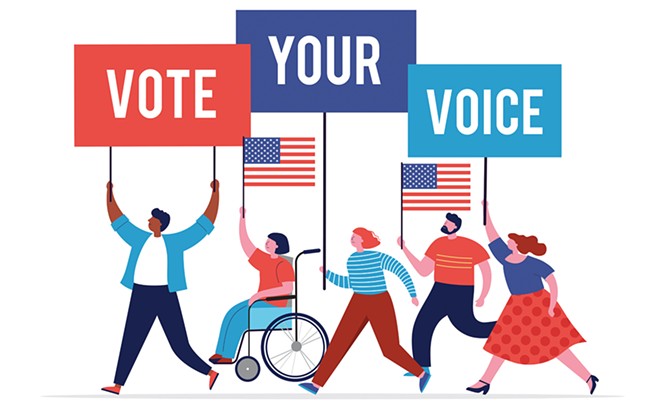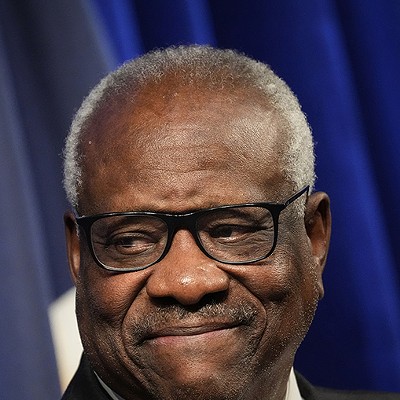Just because you get to vote doesn't mean you live in a democracy.
In a democracy, you should have a choice between at least two people from two different parties.
Yet often when I go to the polls for a general election I find there is no decision to be made. The number of candidates equals the number of votes I get to cast for that office or board. One vote guarantees a victory.
In November I counted seven uncontested races on my ballot and this spring there were only two races that were contested.
Unfortunately, in 2021we are being treated to partisan efforts by both parties throughout the country to further assure we have fewer competitive races for state and federal legislative seats that can ultimately impact both presidential and local elections. If you care about democracy, these efforts should be worrying.
Usually such partisan efforts are focused on gerrymandering, the process where the party in control of a state's legislature draws legislative boundaries to assure voters friendly to the controlling party have their votes maximized and other voters have their votes minimized.
This process often creates a number of legislative seats that are so safe that opposition parties either can't find a candidate to challenge the controlling party or can only find candidates who mount token campaigns with no real chance of victory.
Why is gerrymandering a problem? Elected officials who feel too insulated from real election challenges may be tempted to make legislative or ethical decisions that put their interests first, rather than the interests of the people they represent. It is good for politicians to be looking over their shoulders to watch out for the opposition.
When one party has a stranglehold on legislative power in a region, that advantage can translate into dominance in local races because forces that want to curry favor of elected officials will have no choice but to funnel funds to the party in power in the region.
However, over the last year a new effort to further skew the strength of parties to prevent competition has materialized: the red county secession movement.
I am not talking about secession from the union. But the movement advocates reliably Republican counties in an otherwise reliably Democratic state to explore leaving their state to either form a new state or be annexed into an adjacent Republican-leaning state.
The most prominent current attempt is the Greater Idaho movement that seeks to move Republican-leaning counties in eastern and southern Oregon and northeastern California into Idaho.
While forming Greater Idaho faces a number of hurdles, if successful it could siphon off one to three electoral votes (depending on which counties transferred) from Democratic Oregon and California that would be transferred to Republican Greater Idaho.
The result would be all three states could become places where one party may have an unassailable dominant position.
Illinois has 23 downstate counties, including neighboring Christian, jumping on the county secession bandwagon by approving referendums to form a new state because they dislike the domination of Chicago (meaning Democrats).
What is strange is that many of these counties voting for secession would be in even worse shape if they left the state because taxes collected from Chicago and northern Illinois are disproportionately funneled to these counties. For every $1 Christian County pays in state taxes they get $2.17 back (Paul Simon Public Policy Institute at SIU-C, 2018). Johnson County voted for secession, yet gets back $6.29.
Such efforts to split from a state based on party affiliation suggest that proponents have given up on any political process that tries to reconcile the conflicting but often legitimate needs and views of conservatives vs. progressives, urban vs. rural areas and minority vs. majority groups. It simply divides us further.
So what are potential solutions?
Using ranked choice voting for all elections will increase the viability of third parties and thus choice in elections.
A constitutional amendment creating a nonpartisan redistricting commission would facilitate creating legislative districts that are more diverse and thus more competitive. Winning candidates in such diverse districts will tend to be more moderate.
In these polarizing times, more choices and moderates are what we need. We don't need secession.
Dr. Soltys of Springfield is a retired physician who still teaches medical students at SIU on a volunteer basis.






















